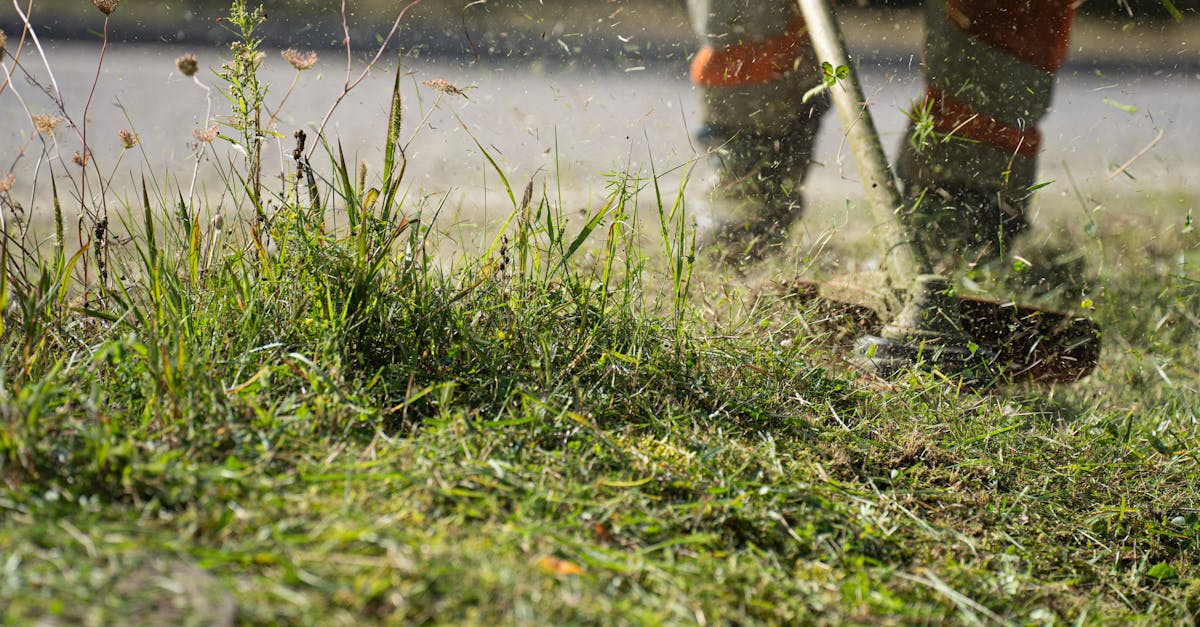
Grass Maintenance
Grass Maintenance
As more homeowners become aware of the environmental impact of traditional lawn care practices, the demand for Organic Lawn Care Solutions continues to rise. These eco-friendly alternatives not only promote a healthier yard but also contribute to the overall well-being of the planet. By opting for organic lawn care solutions, individuals can cultivate lush, vibrant grass while minimizing the use of harmful chemicals that can infiltrate local waterways and disrupt local ecosystems.
Implementing organic lawn care solutions goes beyond just enhancing the aesthetic appeal of a yard; it also fosters sustainable practices that benefit both the environment and the health of your family and pets. From natural fertilizers to effective pest control methods, these solutions offer a holistic approach to grass maintenance that prioritizes long-term health over quick fixes. With the right strategies in place, anyone can transform their outdoor space into a thriving sanctuary that reflects their commitment to organic and sustainable living.
Hydration Strategies for Healthy Lawn
Creating successful watering techniques is essential for ensuring an vibrant lawn. It requires understanding the requirements for your grass based on aspects including environment, the soil, and grass variety. Deep watering each week is often recommended because it supports enhanced root development.
Furthermore, when to water is an important factor in successful grass maintenance. Watering at dawn is preferable to reduce evaporation and enable the lawn to utilize moisture efficiently. Employing soaker hoses that provide a slow release of water can assist preserve moisture levels in the soil while stopping excess runoff. Keeping an eye on weather conditions in addition ensures you can irrigate the yard correctly.
Advice on Effective Irrigation Methods
Effective watering serves as a essential factor of lawn care. Grasping correct volume of moisture your grass needs is important. This is recommended to irrigate early in the morning when heat are cooler. This enables the water to infiltrate deeply into the soil before disappearing in the heat of the day.
Furthermore, adopting strategic watering approaches can aid reduce water while promoting a lush lawn. Evaluate using a soaker hose or drip irrigation system for deliver water directly to the roots avoiding unnecessary runoff. Observing soil moisture can also aid determine when it is time to irrigate again. With applying these tips, you can guarantee a healthy and thriving lawn.
Selecting the Appropriate Lawn Type for Your Environment
Selecting the right lawn breed can be important for a lush lawn. Several lawn varieties thrive under specific weather circumstances. For example, cool-season grasses like Kentucky bluegrass grow well in northern regions, while hot-season grasses like Buffalograss thrive in hotter climates. Recognizing your climatic conditions is key factor when determining which lawn breed to use.
After you have a grasp on your environment, the next phase is to evaluate other aspects that can influence your lawn choice. Ground type, sun exposure, and irrigation availability all play in how well a certain lawn breed will establish. For instance, if you have clay soil, you might want to opt for lawn varieties that are more tolerant to those conditions. Moreover, if your lawn receives full sun, selecting a lawn that prefers sunlight will ensure a more lush landscape.
Things to Think About when Selecting a Lawn Variety
Selecting a suitable turf type can be critical for achieving an healthy landscape. Factors include the climate factors in the local location. Warm season types of grass perform well in hot temperatures, whereas cool season flourishes best during cooler weather patterns.
Another thing to think about involves the property's purpose. High-traffic benefit from resilient grass which can endure heavy foot traffic. Additionally, soil conditions and sunlight should be assessed to guarantee the selected lawn will grow well in its surroundings.
Sustainable Yard Care for Sustainable Property Owners
Nurturing the grass in an organic approach is not only aid nature, but supports the health of your grass. Adopting natural soil amendments along with insect management techniques that are safe for your humans and non-target species is a fantastic choice for those looking to lower the impact on nature.
Applying eco-friendly techniques like composting clippings as mulch as well as installing native plants will boost the health of your yard's appearance while preserving the local ecosystem. Choosing native turf that demand less water and which are more resilient in response to environmental conditions serves as a beneficial way to secure a vibrant grass without overly high resource use.
Benefits to Going Eco-Friendly for Your Yard
Opting for sustainable methods for your yard provides various advantages. A primary reason is the beneficial impact on the ecosystem. Eco-friendly lawn care lessens the use of harmful chemicals that can harm water and harm local wildlife. By embracing these practices, homeowners contribute to a healthier planet while enjoying a lush and vibrant yard.
A further advantage of choosing organic lawn care is enhanced soil health. Eco-friendly amendments foster the growth of beneficial microorganisms in the ground, leading to improved nutrient availability for your yard. Healthier soil results in increased drought resistance and lowered susceptibility to pests and diseases. In the end, going sustainable is not only advantageous for the environment but also establishes a thriving and resilient yard.